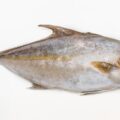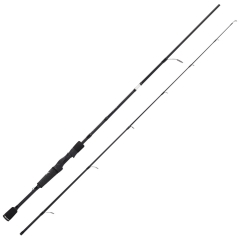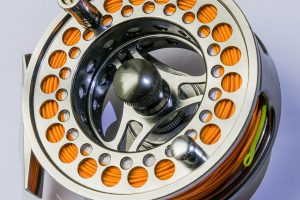In terms of B12, B3, B6, B2, copper, B5, B1, and phosphorus, salmon is more abundant than grouper. When individuals are unsure which fish is best to eat, they frequently compare grouper with salmon. As we differentiate grouper and salmon fish, we will now provide you with some important facts.
What Distinguishes a Salmon from a Grouper?
Salmon and grouper are nutritious fish options. Naturally, each fish has a different set of values or level content. Below are some distinctions between salmon and grouper fish:
Grouper and Salmon Care Level Diagram
| Care level | Grouper | Salmon |
| Temperament | Moderate | Stubborn |
| Lifespan | Over 20 years | 2 to 7 years |
| Size | Up to 27 inches | 20 inches to almost 5 feet |
| Diet | Carnivore | Carnivore |
| Family | Serranidae | Salmonidae |
Flavor
One of the best-tasting fish is the grouper. Its meat is appropriate for a variety of meals because of its solid structure and somewhat mild, sweet flavor. To put it briefly, grouper has a black sea bass-like flavor. Grouper is not a rare fish. The majority of restaurants and your local fish stores carry this saltwater fish. Whether you’re seeking a sandwich or a barbecue, grouper is the answer. It fills you up with its mouthwatering flavor while also nourishing your body. Other than raw, grouper is delicious in all forms.
Unexpectedly, salmon has a softer, more refreshing flavor than other fish available in stores. The flavor differs depending on the species of salmon. The delicate flavor of salmon is complemented by a rich, slightly greasy flavor. Salmon that has been baked, grilled, or poached frequently has a lemony, buttery flavor, as well as any additional tastes that have been added. Salmon in cans is frequently either bland or oily while smoked salmon tastes smoky and faintly fishy.
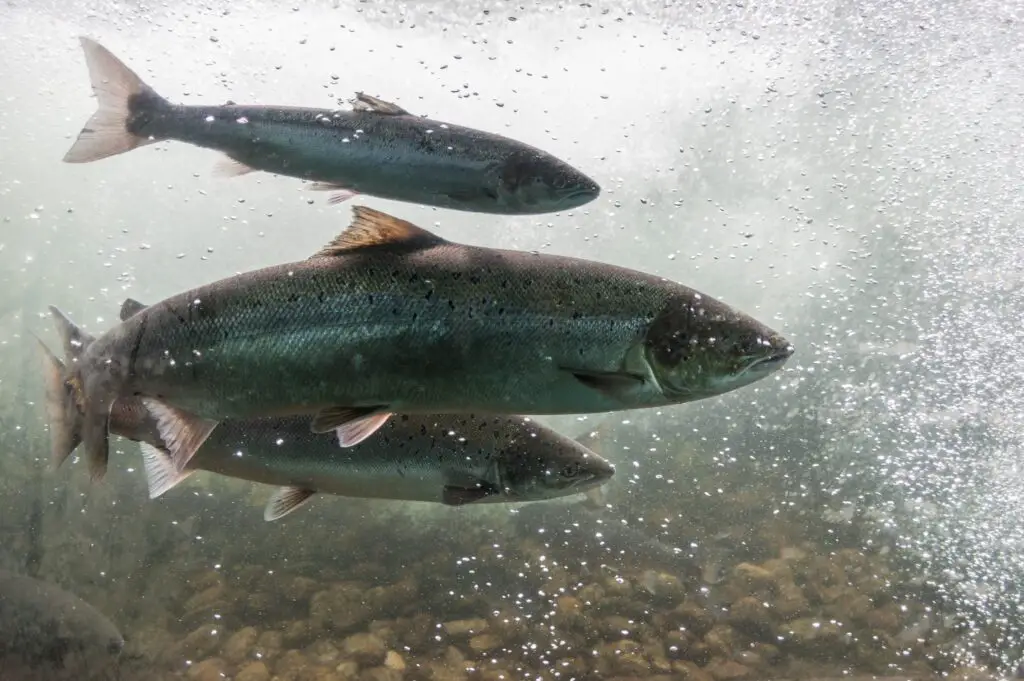
Behavior Pattern
Salmon are social fish that live in schools because they are social beings. To protect themselves from predators, the young remain in deep pools of rivers and streams. Before making the transition to the ocean, they stay in fresh water for a while. The fish return to the rivers and streams where they were born after spending a few years at sea in order to reproduce.
A newly introduced grouper may be very timid and prefer to hide behind rocks. They’ll spend most of their time gently swimming about the middle levels of the ocean in search of food as they gain confidence.
The Mercury Level
Salmon is among the cleanest fish to eat, according to the Environmental Defense Fund, because it is generally thought to have less mercury. Anchovies, sardines, oysters, scallops, and shrimp are the only common seafood choices that have less mercury than salmon. Salmon has a mercury content of about 0.022 ppm, which is very low compared to the high mercury content in swordfish and sharks. The Environmental Defense Fund also rates fish based on their omega-3 content and environmental friendliness in addition to their mercury content. Wild Alaskan salmon is at the top of the list of the greatest salmon to eat.
When it comes to the mercury level of fish, the rule of thumb is that larger predatory fish typically have the most mercury. With groupers sometimes hitting up to 400 pounds, it doesn’t come as much of a surprise that groupers can sometimes have a high amount of mercury. Imported grouper and black and red grouper from the Gulf of Mexico have moderate mercury. All grouper species have a mean mercury ppm (parts per mille, or thousand) of 0.448, considered moderate. To put that into perspective, cod and fresh salmon both had mercury content averages of 0.111 and 0.022, respectively. A better option among groupers is the gag grouper, which has 0.271 ppm. A higher quantity of mercury is seen in both farmed grouper and salmon.
Protein Level
Salmon is a delicious fish that is available in many stores and is adaptable. A raw, wild-caught salmon fillet weighing three ounces has 17 grams of protein. Salmon from farms has a little less protein by weight since it has more fat. Anyhow, salmon is a fantastic source of complete protein of the highest quality, including all the necessary amino acids our systems need.
Depending on the fish, it can include a lot of protein. Although grouper won’t win a beauty contest any time soon, it is a nutritional winner with 134 calories and 28 grams of protein in each four-ounce serving. Grouper is a wonderful addition to your diet because of its mild, sweet flavor.
Price
The price difference between grouper and salmon depends on market demand. Of course, these fish are expensive since they are among the most valuable commodities in the fishing industry. Salmon is generally less expensive than grouper, though prices vary depending on the species and quality.
Is Grouper a Healthy Fish to Eat?
Grouper is delicious no matter how you serve it because of its mild flavor, which readily takes on sauces and marinades. One of the best and easiest ways to enjoy this fish is to make fish sandwiches with either a thick slice of blackened grouper or bite-sized chunks of battered and deep-fried grouper.
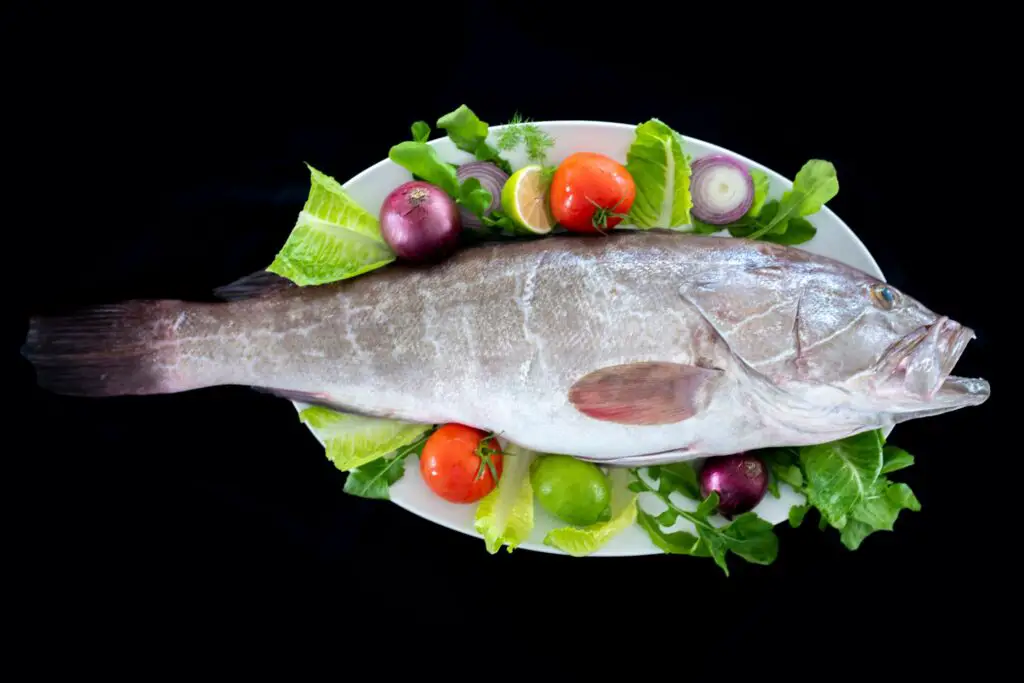
Is Salmon Good or Unhealthy?
The heart and brain have been found to benefit from salmon’s high protein and omega-3 fatty acid content. An excellent alternative to wild salmon is fish from farms. Children under the age of eight and women who are fertile should keep eating fish that is known to be free of pollutants.
What Fish Is Comparable to Salmon?
A white fish with firm flesh that may be cooked similarly to salmon has mild, meaty, and forgiving fillets. Examples include pollock, hake, halibut, and cod. If the flesh is opaque and flakes off readily, it has been cooked.
Conclusion
-
- Salmon and grouper come in a variety of flavors. Both of these amazing fish have their own pluses and minuses, which can help you distinguish between them.
-
- Having a high nutritional value, salmon and grouper are both delicious. As both offer the best taste, you can switch them out based on your needs.



